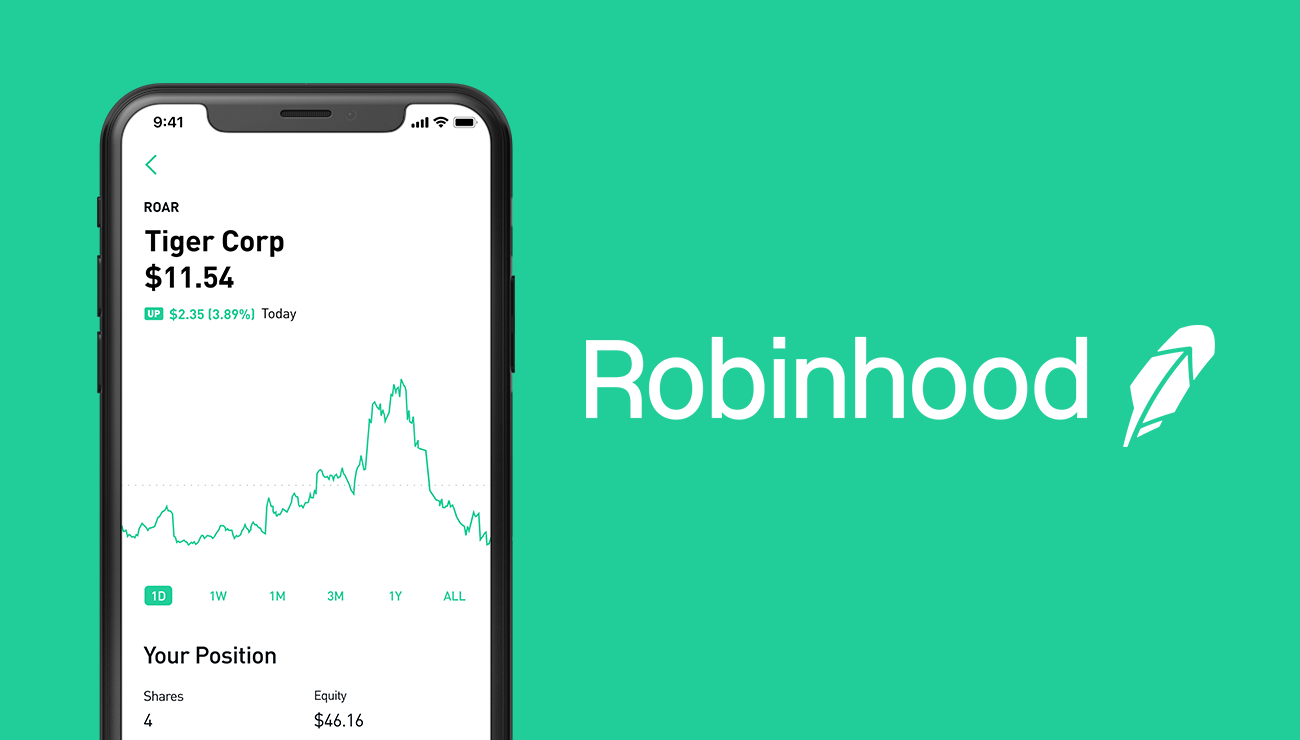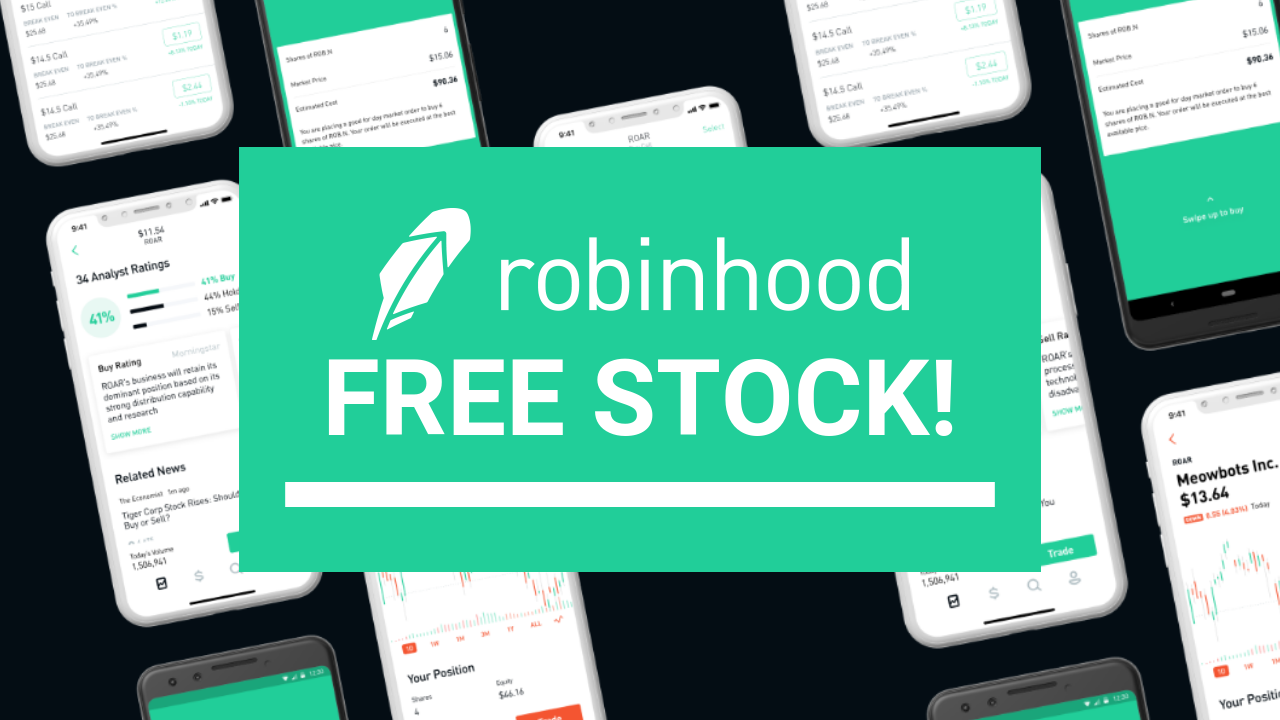Top Takeaways for 2019
After spending six months testing 16 online brokers for our ninth annual stock broker review, here are our top findings on Robinhood:
- Founded in 2013 and a member of both the SIPC alongside FINRA, Robinhood has raised $539 million in venture capital funding and is safe for online stock trading.
- Robinhood's mobile app is very easy to use and is our No 1 pick for usability in 2019.
- Robinhood is great for beginners; the broker finished Best in Class (top 5) for beginner investors, despite lacking a strong presence of investor education materials.
- Robinhood has stirred controversy for its acceptance of payment for order flow (PFOF). While not truly free, in the scenarios we assessed, Robinhood is still a very cost-effective broker to trade stocks with. Robinhood finished Best in Class (top 5) for Commissions and Fees.
- At $5/mo ($60 per year), Robinhood Gold is not a good deal unless you are a very active trader placing trades consistently each month. See "Robinhood Gold" under Commissions & Fees below.
- Robinhood provides a bare-bones trading experience, making it a poor choice for investors seeking a robust trading platform.
- Robinhood's stock research tools are severely lacking across the board.
- Robinhood offers no phone option for customer service. As a result, we could not conduct nationwide testing in 2019.
- Robinhood's offering of investments permits only basic trading of stocks, ETFs, options, and cryptocurrency.
Commissions & Fees
- Like many discount brokers, Robinhood charges no commission for trading stocks, ETFs, options, or cryptocurrency. However, as most Americans know, nothing is truly ever free.
- How Robinhood makes money: For example, Facebook (FB) is technically a free service. To offset not charging a subscription fee, it generates revenue from collecting your user data and selling ads. In Robinhood’s case, it too is a free service, just like Facebook. Instead of selling ads, though, it is selling your order flow (the right to fill your order) to wholesale market makers. Thus, Robinhood is not really free.
- Looking at Robinhood’s closest competitors, only two do not accept payment for order flow (PFOF): Fidelity and Merrill Edge. This means they pass along any savings back to the customer, resulting in better executions (a higher price for each share sold or a lower purchase price for each share bought).
- Robinhood Gold: Also, Robinhood Gold is a bad deal. Robinhood Gold costs $5 per month to gain access to Morningstar reports, Level II streaming quotes, and margin trading (which charges 5% annual interest). Competitors TD Ameritrade, E*TRADE, and Charles Schwab all offer measurably better stock research, trading tools, customer service, etc for the same $0 per stock trade price. If you want to use Robinhood, just stick to the free trades.
Offering of Investments:
- Compared to its larger, full-service broker competitors such as TD Ameritrade, Fidelity, and E*TRADE, Robinhood’s total offering of investments is poor. In summary, Robinhood offers only what is required to trade stocks, ETFs, options, and cryptocurrency.
- For example, mutual funds and bonds are not supported, nor are basic advanced order types such as trailing stop orders. That said, most online brokerages do not offer cryptocurrency trading. Robinhood does.
- Robinhood offers its downloadable mobile app as well as a web platform (its website) for customers to use. Both platforms have similar feature sets. Between the two, I prefer the mobile app.
- Looking at the entire offering of trading tools, Robinhood provides a minimalistic experience because it focuses on young investors attracted to idea of free trades. Even streaming real-time quotes are not included and require Robinhood Gold at $5/mo. If you are looking for all the bells and whistles, take a look at TD Ameritrade or TradeStation.
Robinhood mobile app account summary Robinhood website account summary Robinhood website stock quote Robinhood website portfolio holdings Robinhood website bitcoin cryptocurrency quote
Mobile Trading:
- For basic stock trading, Robinhood has the functionality required to be productive: basic watch lists, basic stock quotes with charts, key metrics, and recent news, alongside a simple trade order form. Bottom line: Robinhood's mobile app is fast, simple, and my favorite for ease of use
- Watch lists: Robinhood’s focus on simplicity also has several notable drawbacks. The watch list functionality is extremely basic and includes few optional columns beyond last price and percentage change. Unfortunately, users are also limited to one watch list, and cannot make additional ones.
- Stock charts: When pulling a stock quote, charts cannot be modified beyond six default date ranges, no technical analysis can be conducted, and even landscape mode is not supported for horizontal viewing. Pulling stock quotes using the free Yahoo Finance or CNBC mobile app, for example, provides a superior charting experience.
- Price alerts: Lastly, Robinhood currently only allows users to enable notifications for all of their positions or all of the stocks in their watch list. Basically, unless you hold shares in a stock, you cannot set price alerts for that symbol. This makes monitoring potential stocks to trade cumbersome and annoying.
Robinhood mobile app watch list Robinhood mobile app stock portfolio holdings Robinhood mobile app stock quote screen
Research:
- No matter how you slice it, Robinhood's research offering is severely lacking across the board.
- Robinhood offers analyst ratings, “people also bought” recommendations and sections such as “about” for company bios. It's a cut and dry experience focused on simplicity. To some investors, this is fine, to others, they will be left wanting much more. Side note: to gain access to Morningstar research reports requires subscribing to Robinhood Gold for $5 per month ($60 / year).
- All in all, the overall research experience significantly trails industry leaders Fidelity and Charles Schwab. Unfortunately, it isn’t even close.
Final Thoughts
For investors looking to conduct the bare bones basics, Robinhood gets the job done well. Beyond that, Robinhood will leave you wanting more.
About Robinhood
Founded in 2013, Robinhood is an online broker that has raised $539 million in venture capital funding. Robinhood, which appeals primarily to young Millennial do-it-yourself investors, is best known for offering $0 stock, ETF, options, and cryptocurrency trades alongside an easy-to-use website and mobile trading app.
Robinhood Q&A
Is Robinhood completely free? The short answer is yes, technically Robinhood is free and charges $0 for stock, options, and cryptocurrency trades. However, certain features require a $5/mo subscription to Robinhood Gold and Robinhood does accept payment for order flow (PFOF). Here's Robinhood's Fees disclosure PDF and here's our full breakdown of how Robinhood makes money.
How do I get my money out of Robinhood without paying any fees? First, sell all your stocks and any other positions. Next, transfer all your cash via ACH to your bank account (ACH transfers are free). Finally, contact Robinhood to close your account. If you transfer stock holdings to another broker, Robinhood will charge you a $75 ACAT fee. Switching brokers? See our list of the best online stock brokers 2019.
Can I day trade stocks using Robinhood? You need at least $25,000 in your account to day trade with Robinhood (all brokers require at least $25,000 by law), otherwise your account is restricted to just three day trades every rolling five business days. That said, even if you had $25,000, I wouldn't recommend Robinhood. Read our best day trading platforms guide.
Can I buy and sell Bitcoin with Robinhood? Yes. Robinhood currently offers seven tradeable cryptocurrencies: Bitcoin (BTC), Ethereum (ETH), Bitcoin Cash (BCH), Litecoin (LTC), Dogecoin (DOGE), Ethereum Classic (ETC), and Bitcoin SV (BSV). Ten additional cryptocurrencies can be added to any watch list.
Can you trade penny stocks with Robinhood? No. You cannot trade penny stocks on Robinhood. Over-the-counter (OTC) securities are not supported. However, Robinhood customers can trade company shares listed on the NASDAQ and NYSE whose stock price is currently below $1.00.
Can you trade international stocks with Robinhood? Yes. Robinhood offers customers the opportunity to buy and sell over 250 popular American Depositary Receipts (ADRs), including shares in companies such as Adidas (ADDYY), Tencent (TCEHY), and Nintendo (NTDOY).
Is Robinhood safe? Like its competitors, Robinhood is regulated by the SEC and is a registered member of the SIPC and FINRA (CRD #165998) in the United States. The company has its headquarters in Palo Alto, California, and has had no reported security breaches since its launch in 2013.
Do any of Robinhood’s competitors offer $0 trading? Yes. TD Ameritrade, E*TRADE, TradeStation, Charles Schwab, Ally Invest, and Firstrade all offer $0 stock trades. Compare Robinhood vs TD Ameritrade.
Can I trade immediately after opening my Robinhood account? When you open and fund an account with Robinhood, the broker is unique in that it provides you access to up to $1,000 in funds, available immediately for trading while your ACH transfer deposit processes. Under normal ACH transfers, the average processing time is two to three days.


No comments:
Post a Comment